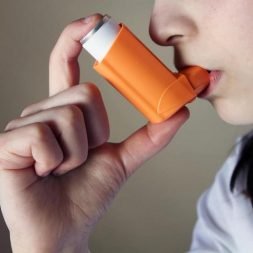Cold allergy is an allergy caused by cold. This disorder is caused by cold strengthened by wind.
Cold Allergy Causes
But for all that, cold is the triggering mechanism, which causes immune failures body’s cells, which subsequently expressed in violation of their integrity and rapid histamine release, accompanying allergic reactions.
Also causes enhancing cold allergy may be:
- genetic predisposition;
- the intoxication of the whole organism;
- chronic infections, such as tonsillitis, pyelonephritis, tooth decay;
- worms;
- gastrointestinal tract disorders;
- liver disorders;
- stress;
- medications.
By the way, to find out whether you have an allergy to cold or not, you should put at any part of your body a piece of ice for no more than 10 minutes. If after removing ice, you will find rash and itching, then you are likely to be predisposed to it. Yet this is not a definitive diagnosis, and you need specialist consultation for its confirmation by certain analyzes and tests.

Symptoms
External signs of allergies are:
- a red rash;
- swelling and blisters;
- itching;
- burning.
Most often it resembles sting, for which this type of allergy was nicknamed as «cold urticaria fever».
Other manifestations include:
- inflammation of lips skin;
- sudden allergic runny nose;
- sneezing;
- watery eyes;
- fatigue;
- headache;
- bronchospasm.
To more severe forms of the disease can be attributed: fever, tachycardia, severe dyspnea and sometimes vomiting.
After contact with snow or cold rain, there can appear more enhanced reaction to cold, which will be accompanied by red swollen sports with clear liquid.
Allergy manifests itself primarily on arms, hands and face. But in extreme cases, its symptoms appear also on forearms, that do not have sufficient amount of fat and sweat glands, without which the body reacts to cold twice faster.
Watch the video for getting more information about Allergic to the Cold:
Treatment of Cold Allergy
If the basis for cold allergy emergence is domestic human immune disorders, as well as problems associated with internal organs functioning such as stomach disorders, dysbacteriosis, ulcers, gallbladder inflammation, hepatitis, problems with maxillary sinuses, usual approaches to its treatment are not always effective.
For example, taking antihistamines and other anti-allergic medications before going outdoors can bring only temporary relief. Therefore, in order to successfully deal with allergies to cold, you need to eliminate its root cause.
So, first of all, you need to go to gastroenterologist and allergist to examine your entire body. Basing on results, the doctor will prescribe appropriate treatment, select correct diet, which is very important in this situation. The list of essential medicines includes enzymatic, cholagogues and antiparasitic drugs that protect your liver and improve stomach condition.
Also, a very effective method to treat cold allergy is carrying out several mineral water courses, which should be consumed hot half an hour before each meal. But this method needs to be discussed with your doctor because it is very individual, and not for everyone.
You probably know how useful proper body cold training is. Prepare two baths of cold and warm water, and begin to put hands alternately in different baths for 30 seconds. Do 3 sets, completing procedure with cold water.
Prevention of Cold Allergy
Unfortunately, we are not able to impact on weather conditions, so our main task – to reduce their negative effects on the body.
Here are basic rules, you should adhere to:
- choose to clothe made of only natural fabrics. The best option – cotton, which does not cause allergies;
- clothing should always be dry. If you get wet in the street, be sure to change your clothes;
- in cold weather, always use hygienic lipstick;
- 30 minutes before going outside, apply special cream with UV-protection on face and hands;
- in your wardrobe warm gloves, hats, scarves, high winter boots, sweaters and pants with a heater must be present;
- in cold weather, refrain from using body scrubs and alkaline-based soaps;
- about half an hour before going out get warm with hot tea;
- if possible, limit coffee, chocolate, smoked foods, citrus fruits, strawberries and pineapple consumption. And be sure to exclude ice cream;
- before eating food out of refrigerator it is necessary to heat it to room temperature;
- add to your daily diet such essential to any organism products (also rich in omega-3 fatty acids) as nuts, fish and olive oil;
- in case of blisters on skin appearance, they should be treated with brilliant green;
- at a strong and unbearable itch, apply lotion of baking soda solution to affected sites of the skin.
Posted by Dr. Himanshu Singh

 English
English Deutsch
Deutsch Français
Français Italiano
Italiano Español
Español Svenska
Svenska Português
Português 日本人
日本人 Dansk
Dansk Norsk
Norsk Suomi
Suomi Czech
Czech


